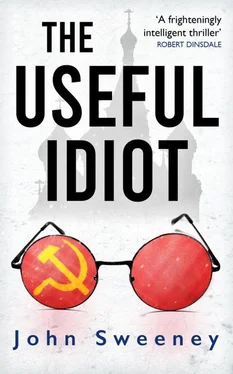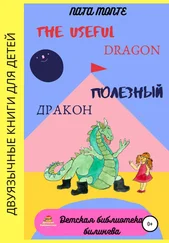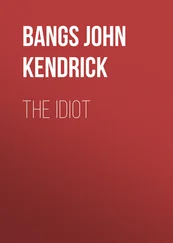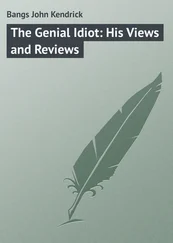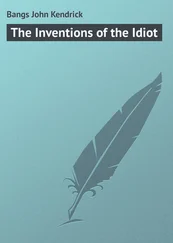John Sweeney - The Useful Idiot
Здесь есть возможность читать онлайн «John Sweeney - The Useful Idiot» весь текст электронной книги совершенно бесплатно (целиком полную версию без сокращений). В некоторых случаях можно слушать аудио, скачать через торрент в формате fb2 и присутствует краткое содержание. Город: London, Год выпуска: 2020, Издательство: Silvertail Books, Жанр: Исторический детектив, Триллер, на английском языке. Описание произведения, (предисловие) а так же отзывы посетителей доступны на портале библиотеки ЛибКат.
- Название:The Useful Idiot
- Автор:
- Издательство:Silvertail Books
- Жанр:
- Год:2020
- Город:London
- ISBN:нет данных
- Рейтинг книги:4 / 5. Голосов: 1
-
Избранное:Добавить в избранное
- Отзывы:
-
Ваша оценка:
- 80
- 1
- 2
- 3
- 4
- 5
The Useful Idiot: краткое содержание, описание и аннотация
Предлагаем к чтению аннотацию, описание, краткое содержание или предисловие (зависит от того, что написал сам автор книги «The Useful Idiot»). Если вы не нашли необходимую информацию о книге — напишите в комментариях, мы постараемся отыскать её.
* * *
The Useful Idiot — читать онлайн бесплатно полную книгу (весь текст) целиком
Ниже представлен текст книги, разбитый по страницам. Система сохранения места последней прочитанной страницы, позволяет с удобством читать онлайн бесплатно книгу «The Useful Idiot», без необходимости каждый раз заново искать на чём Вы остановились. Поставьте закладку, и сможете в любой момент перейти на страницу, на которой закончили чтение.
Интервал:
Закладка:
“Anyone with any sense in Britain knows that Crowley was a silly old ham. Pentacles and Beelzebub and a load of old rot.”
“Maybe. But for me, for us Russians and Ukrainians, Duranty is a living evil.”
He bowed his head. “I’m sorry. I am a ffwl.”
“Ssssh.” She lifted his jaw with a caress of her fingers and kissed him lightly. There was no helping it: he kissed her back with all the pent-up desire he had felt since the first moment he’d seen her. Within seconds, they were lost in each other’s passion. In the distance, a steam engine whistled and its melancholy sound travelled through a ghost world.
Later, they walked through the moonlit streets, arm in arm. “We might be seen together, no?” he asked, anxiously.
“For a translator to take a Western reporter as a lover is expected.”
“I already have a translator. Madame Koloshny.”
“Is she a good worker?”
He shook his head.
“Does she sleep with you?”
“Certainly not.”
“Do you want to sleep with her?”
“No.”
“Then fire her and hire me.”
“You’re quite the capitalist, aren’t you?”
She smiled to herself.
“All right.”
“I will have to spy on you, of course.”
“Of course. What will you tell them?”
“I will tell them everything.” She paused. “Everything that is appropriate.”
“Which is?”
“That you are a useful idiot. That you are sympathetic to the workers’ state and admire the heroism of the Soviet Union – but that, from time to time, you wonder about food shortages and things that don’t seem right. Nothing too alarming. That you like girls. Not boys. You are a reasonable catch for them and for me. It is only a pity that your newspaper is not a major organ of Western propaganda like the New York Times but a provincial voice. Tolstoy, I think, once wrote: ‘there is nothing worse than a provincial celebrity’. That is you, yes, Mr Jones?”
He pinched her on the arm and she laughed.
“Evgenia, may I ask, what does Duranty think of me?”
“The provincial celebrity wants to know what the national celebrity thinks of him now?”
“Steady on.”
“He says that you are dull, something of a nobody, neither a capitalist nor a Communist, with no real passion for anything much. But secretly?”
“Yes?”
“He hates you.”
“What? At Kurskaya station that day, he saved my life.”
“He saved the face of Soviet power, he saved Lyushkov from, how shall I say, embarrassment. It would have been a terrible thing for them if the opening of their precious Lenin Dam had been marred by the killing of a foreign journalist.”
“OK, but why do you say he hates me?”
“Never underestimate the loathing ambition holds for talent.”
“Ha!” He kissed her out of delight, then asked, “Where are we going?”
“To the stables. When we get close, I will go ahead and you follow me, two hundred feet behind. If you see anyone following us, just walk on by and go home and I will find you another time.”
No-one was about. As he ducked down, the small door into the basement opened inwards. The brilliance of the moon and the darkness within blind-sided him, making him stumble down the steps – but a woman’s hands steadied him.
“Steady, Mr Jones…” The voice was the smokiest in the whole of Moscow.
“Winnie?”
“Sssh. You didn’t see me here. I’m singing cabaret in a tractor factory right now and you best remember that.”
Winnie moved past him, bolted the door and led him by the hand down the passageway. At the end, Evgenia appeared out of the gloom, the light from a candle dancing in her eyes. Jones looked at her too longingly and, with the most subtle of gestures, she turned her gaze from him to Borodin, standing on the edge of the light.
In the far corner, a third figure stirred. It was far too dark for Jones to make out who it was.
“Howdy, friend.” The voice, gravel on moonshine, belonged to Big Bill Haywood.
“We’ve agreed we can show you the documents we’d like you to ship out for us,” said Borodin. He fell to his knees and cleared some of the straw underfoot, lifting up a latch and dropping down to a hidden room below. Jones followed, then Evgenia and Winnie, with Haywood coming last. The ceiling was so low they had to crouch. Borodin led the way in the near-complete darkness. Twenty feet further on, a thick black blanket lay ahead. Feeling with his hands, Borodin found a switch and a film projector clicked into life. The screen was a white sheet, pinned to a brick wall.
Three… Two… One…
And the film flickered into life.
A corpse, skeletally thin, on a mortuary slab. The camera pans left and finds eight, nine, ten corpses, more bone than flesh, lying on slabs. The cut jumps again. A railway wagon in a siding. The tarpaulin is lifted and the camera sees a jumble of stick-limbs, giant heads, swollen bellies, thirty, maybe forty corpses in all. The cut jumps for the last time. The camera sees the Lenin statue in Dnipro. A woman hurries in black towards Lenin, carrying an object which she lays down before him. The camera closes in and sees that it is a baby and the baby is dead. There is no sound but it’s clear that the woman starts screaming. A GPU truck arrives and the woman and the baby are removed. The film fades to black.
“It’s the famine,” said Evgenia. “One reel and every second shows our people, men, women and children, dying of hunger. The best shot, you saw it yourself, with your own eyes.”
“Daliwch eich tafod, ffwl,” said Jones. “Gwelodd rhywun arall hi hefyd. Daliwch eich tafod neu byddwch yn difetha popeth.”
“What are you talking about?” asked Haywood.
Jones stayed silent for a time.
“How many dead?” he asked.
“Five million,” said Evgenia. “Six million. Seven million. No-one knows for sure because no-one is counting. But millions, no doubting it. Stalin’s collectivisation is killing the peasants. The Cheka go in, shoot their horses, butcher their cattle and sheep, leave them with nothing. Anyone who fights back is shot. Anyone who doesn’t, starves. The famine is raging across the whole of Russia but it’s worst in the Ukraine.”
Jones was silent for a long time. Then he spoke. “You do realise that this is some kind of collective suicide mission, don’t you? The Cheka will kill you all. Why are you doing this? Why are you fighting them, this system?”
“I am Ukrainian, Mr Jones,” said Evgenia, stiffly, “and this system, as you call it, is murdering my people.”
“You were born in Wales.”
“But I am Ukrainian now.”
“I am half-Russian,” said Borodin, “but all human being and this a monstrous crime against humanity.”
“And you, Haywood, why should an American dare touch this live wire?”
Haywood hesitated, thinking it over. “I am an American. The Cheka may have taken our passports but, so long as Stalin wants diplomatic recognition from the USA, we Americans in this, we have an insurance policy. They’re killers but they’re subtle. They don’t want bad headlines in the American papers about us disappearing or going missing. For now. So we’re protected. The Russians have a word for it, ‘krysha’. It means ‘roof’ or cover. We’ve got roof.”
“Come on. That’s not a real insurance policy and that’s no answer.”
Haywood laughed. “This, my friend,” said Haywood, “is the Wobblies’ last stand. The International Workers of the World have always stood for the rights of the working man. Our last great battle, Moscow, 1933, is to get the truth out about the famine that’s killing the workers in the fields here. Better die fighting than be a slave. What about you, Mr Jones?”
Читать дальшеИнтервал:
Закладка:
Похожие книги на «The Useful Idiot»
Представляем Вашему вниманию похожие книги на «The Useful Idiot» списком для выбора. Мы отобрали схожую по названию и смыслу литературу в надежде предоставить читателям больше вариантов отыскать новые, интересные, ещё непрочитанные произведения.
Обсуждение, отзывы о книге «The Useful Idiot» и просто собственные мнения читателей. Оставьте ваши комментарии, напишите, что Вы думаете о произведении, его смысле или главных героях. Укажите что конкретно понравилось, а что нет, и почему Вы так считаете.
